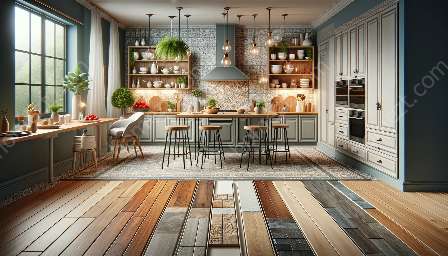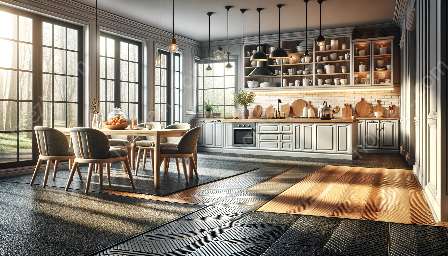When it comes to kitchen design, the flooring plays a crucial role in both functionality and aesthetic appeal. Choosing the right flooring for your kitchen can be a daunting task, especially when considering the cost. In this comprehensive guide, we will delve into the various factors that influence the cost of kitchen flooring, popular materials, installation expenses, and budget-friendly options.
The Importance of Quality Kitchen Flooring
The kitchen is often referred to as the heart of the home, making it essential to invest in high-quality flooring that can withstand the demands of daily use. From spills and splashes to heavy foot traffic, the flooring in your kitchen needs to be durable, easy to clean, and resistant to moisture and heat. Additionally, the flooring should complement the overall design and style of your kitchen and dining area.
Factors Influencing the Cost of Kitchen Flooring
Several factors can impact the cost of kitchen flooring, including the choice of material, installation method, and the size of the kitchen. Understanding these factors can help you make an informed decision and stay within your budget.
Choice of Material
The type of material you choose for your kitchen flooring significantly affects the overall cost. Common options include:
- Hardwood: Known for its warmth and timeless appeal, hardwood flooring is a popular choice for kitchens. However, it tends to be more expensive than other materials.
- Laminate: Laminate flooring offers a budget-friendly alternative to hardwood and is available in a wide range of styles and colors.
- Tile: Porcelain or ceramic tiles are durable, easy to clean, and come in various designs, making them a versatile and cost-effective option for kitchen flooring.
- Vinyl: Vinyl flooring is known for its affordability, water resistance, and ease of maintenance, making it a practical choice for kitchens.
- Stone: Natural stone flooring, such as marble or granite, exudes luxury but comes with a higher price tag and requires professional installation.
Installation Costs
The method of installation and the complexity of the project can impact the overall cost. Hiring a professional installer may incur additional expenses but ensures a high-quality and long-lasting result.
Kitchen Size
The size of your kitchen will determine the amount of flooring material needed, directly affecting the total cost of the project.
Popular and Budget-Friendly Kitchen Flooring Options
Thankfully, there are numerous cost-effective flooring options available for kitchens that don't compromise on quality and style. Some of these options include:
- Luxury Vinyl Plank (LVP): LVP offers the look of hardwood or stone at a fraction of the cost. It's durable, waterproof, and easy to install, making it an attractive option for budget-conscious homeowners.
- Bamboo: Bamboo flooring is eco-friendly, durable, and relatively affordable. It's also available in various finishes and colors, allowing for versatile design choices.
- Engineered Wood: Engineered wood flooring provides the beauty of hardwood at a lower price point. Its layered construction offers enhanced stability, making it suitable for kitchens with fluctuating humidity levels.
Conclusion
Choosing the right flooring for your kitchen involves careful consideration of cost, material, and practicality. By understanding the factors that influence the cost of kitchen flooring and exploring budget-friendly options, you can create a beautiful and functional space that reflects your personal style while staying within your budget.







































